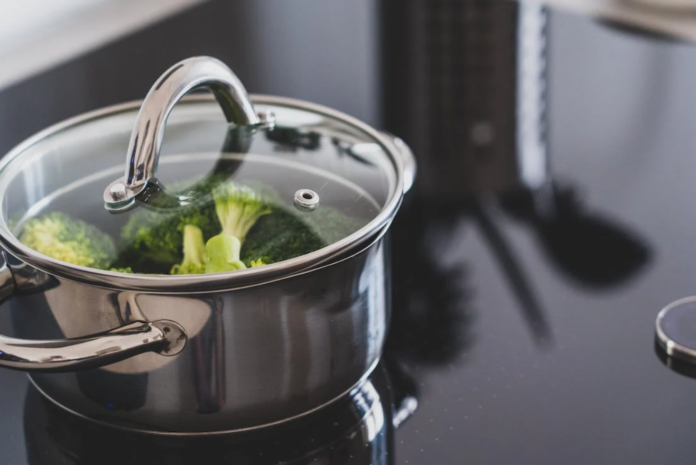Pressure cookers have long been a staple in kitchens around the world, offering a quick and efficient way to prepare meals. These kitchen appliances use steam pressure to cook food faster, making them a popular choice for busy individuals seeking convenience.
However, as pressure cookers gain popularity, so does the number of lawsuits filed against manufacturers due to alleged product defects and safety concerns.
A recent incident reported by About Lawsuits sheds light on the severity of these concerns. Two people from Ohio sued Walmart for product liability on the grounds that they sustained serious burn injuries when the lid of a Farber ware pressure cooker suddenly exploded, spilling the boiling hot contents that were still under pressure within the cooker.
This article explores the rising trend of pressure cooker lawsuits and the impact they are having on the culinary world.
Also Read: How Many Ex Nba Players Are Jehovah’s Witnesses
The Appeal of Pressure Cookers
Due to their power to speed up the cooking process, pressure cookers have become popular among both home cooks and chefs. These appliances offer quicker cooking times compared to conventional techniques since they use steam pressure.
According to a blog post by A Food Lover’s Kitchen, pressure cookers can prepare food up to 70% quicker than conventional methods. The high pressure and temperature within the pot, which quickly dissolves tough fibers in meat and veggies, is responsible for the faster cooking time.
Therefore, pressure cookers are considered a useful appliance for modern kitchens because of their efficiency and convenience.
The Growing Number of Lawsuits
As pressure cookers become more popular, so does the number of reported incidents and injuries associated with their use. This has resulted in a surge of lawsuits against manufacturers, alleging product defects and safety hazards.
Some common issues raised in a pressure cooker lawsuit include faulty sealing mechanisms, defective pressure valves, and spontaneous steam releases. These malfunctions have led to scalding burns, explosions, and other serious injuries, prompting consumers to seek legal recourse.
Also Read: Coperewards. com
Manufacturer Accountability and Product Liability
Pressure cooker lawsuits have raised questions regarding manufacturer accountability and product liability. Consumers argue that manufacturers should be held responsible for injuries caused by defective products. They claim that companies have a duty to design, produce, and distribute safe appliances, and any failure to do so should result in legal consequences.
TorHoerman Law notes that pressure cooker manufacturers are now facing increasing scrutiny as courts examine whether they adequately tested their products and provided sufficient warnings about potential dangers.
The Impact on the Culinary World
The rise of pressure cooker lawsuits is having a profound impact on the culinary world. Consumers, once eager to embrace the convenience of these appliances, are now more cautious and skeptical.
Many home cooks and professional chefs are reevaluating their reliance on pressure cookers, considering alternative cooking methods, or purchasing models from manufacturers with a reputation for safety and quality.
Furthermore, pressure cooker manufacturers are under immense pressure to address the concerns raised by these lawsuits. They are investing in research and development to improve safety features and enhance product quality. Manufacturers are also working to enhance the educational materials and warnings provided to consumers, aiming to mitigate the risk of accidents and injuries associated with pressure cookers.
Regulatory Response and Safety Standards
The rising number of pressure cooker lawsuits has drawn significant attention from regulatory bodies and safety organizations.
About Lawsuits highlights in one of their articles that the U.S. Consumer Product Safety Commission (CPSC) has taken action by issuing multiple pressure cooker recalls. These recalls have been initiated due to issues where lids were able to be opened while the contents were still under pressure.
By issuing recalls, the CPSC aims to remove defective products from the market and alert consumers to potential hazards. These actions not only protect the public but also serve as a deterrent to pressure cooker manufacturers, urging them to prioritize safety in their product design and manufacturing processes.
Summary
The rise of pressure cooker lawsuits has cast a shadow over the once-prominent status of these kitchen appliances. The convenience and time-saving benefits that attracted consumers are now overshadowed by concerns about product defects and safety hazards.
As a result, both home cooks and professional chefs are reevaluating their trust in pressure cookers and exploring alternative cooking methods. Manufacturers are under pressure to address these concerns, investing in research and development to enhance safety features and product quality.
Regulatory bodies are also taking action to protect consumers and encourage manufacturers to prioritize safety. The impact of these lawsuits serves as a reminder of the importance of accountability, product liability, and consumer welfare in the culinary world.









